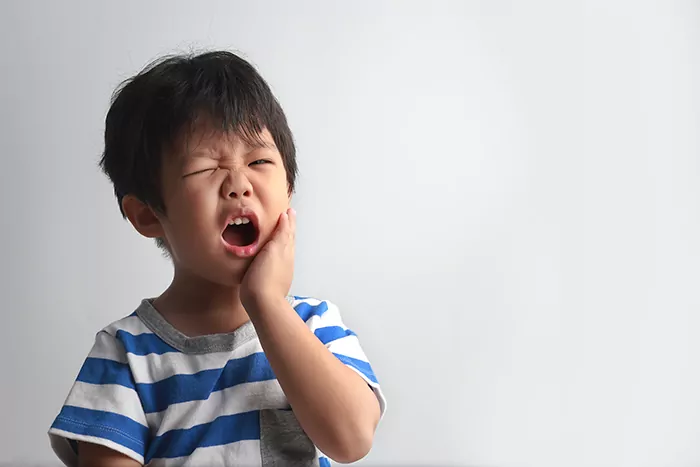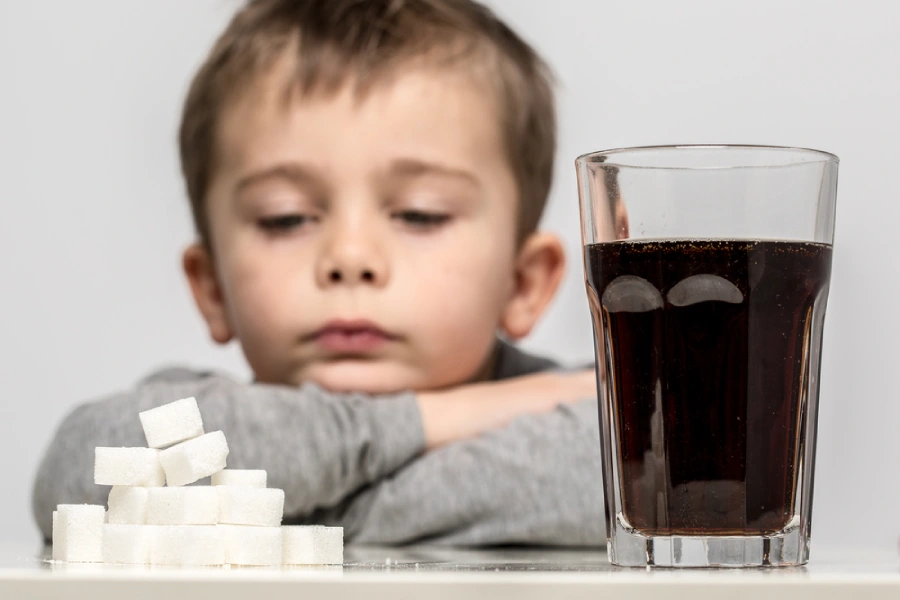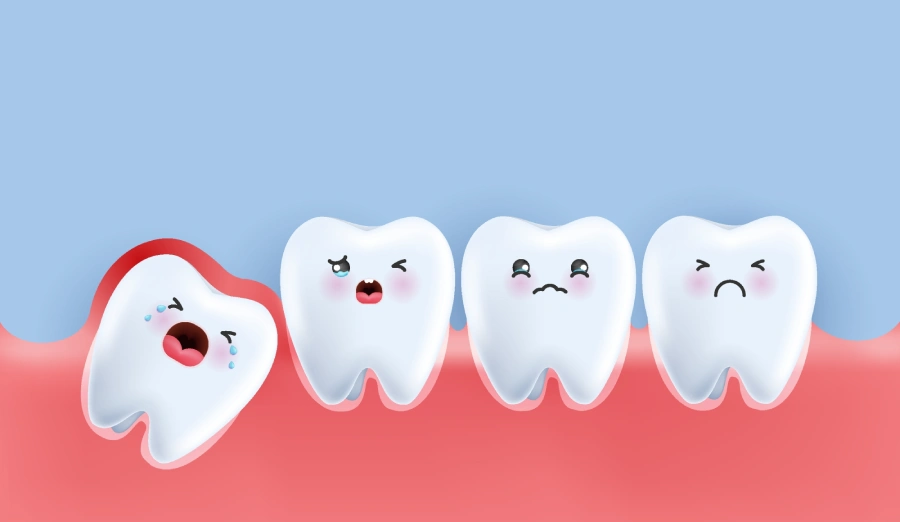Many kids experience toothaches at night, and it can be difficult for adults to understand how to help a child with a toothache. Children, especially young children, often struggle to express themselves and communicate their pain.
One of the most challenging situations to relieve for children is toothache, as there can be multiple causes. Some cause kids toothaches at night and can be severe, while others are not. Some remedies can help eliminate a toothache’s pain and discomfort, such as rinsing with warm salt water or taking children’s over-the-counter medication.
If you have not yet already taken your child to a pediatric dentist for a toothache, you should schedule an appointment as soon as possible to discover the reason for the toothache and prevent it from worsening.
What Causes Toothache for Kids?
There are many causes of why a child has a toothache, and the severity of pain can differ for each reason.
Cavities or Tooth Decay
Most toothaches in kids are caused by cavities when the pulp inside a tooth becomes infected and inflamed. Besides feelings of pain and discomfort, children may have tiredness and can display a fever because of the dental infection.
Teeth Grinding
Sometimes, kids have toothaches at night because they grind their teeth. Teeth grinding can cause toothache if a child has no signs of cavities or tooth decay. If the teeth grinding is left untreated, it can wear away the enamel on the teeth, causing increased tooth sensitivity.
Dentists often recommend wearing a night guard for older children to help relieve Bruxism once they have all of their permanent teeth. Young children grinding their teeth typically do not experience negative long-term side effects. In some cases, teeth grinding can be a symptom of Sleep Disordered Breathing if the child exhibits other symptoms.
Tooth Fracture
Some children can endure a tooth fracture, especially if they play sports, causing them to have a toothache. Children who do not wear mouthguards during sports are more likely to damage their teeth than those who wear mouthguards.

A tooth fracture can go unnoticed if your child does not go to regular dental cleanings every six months, as a cracked tooth is not always visible.
Inflamed Gums
Inflamed gums are more formally known as Gingivitis, and the gums are tender and red. Infrequent brushing and flossing can cause inflamed gums, and the gums usually begin bleeding when the child begins to brush and floss again.
Inflamed gums can make a child feel like they are experiencing a toothache. To prevent gingivitis, regular brushing and flossing are encouraged twice daily.
Abscessed Tooth
If your kid has a toothache at night, it can be due to an abscessed tooth. An abscessed tooth appears like a pimple or boils on the gum line, where pus is inside a pocket. The pus pocket is formed within the tooth’s root and has become infected.
Tooth pain because of an abscess can feel like a throbbing pain. If it is not treated, it will affect the development of the child’s adult teeth by eroding through the bone. A child with an abscessed tooth should see their dentist immediately for treatment.
Sensitivity
Like adults, kids can also experience tooth sensitivity. Tooth sensitivity occurs when porous tissue under the tooth enamel (dentin) becomes exposed.
When dealing with tooth sensitivity, your child might feel tingling, stinging, or pain, especially after eating cold or hot foods. Children’s toothache relief due to sensitivity is to brush twice daily and use toothpaste for sensitive teeth.
How Long Does a Toothache Last for Kids?
Most toothaches in children do not last too long and will usually go away within 24 hours if it is due to sensitivity. If the pain does not go away after 24 hours, you should contact the dentist as soon as possible to ensure the toothache is not due to a cavity or other health concern.
When Should I Take My Child to the ER for a Toothache?
A trip to the emergency room will likely not help resolve a toothache for your child. If your child is experiencing a severe toothache, you should seek emergency care from your pediatric dentist. Severe toothaches are often due to abscesses or infections.
What Can I Give My Child for a Toothache?
Some home remedies for a kid’s toothache can help relieve the pain. To help with children’s toothache pain relief, you should try the following remedies. Do not use any of these foods if your child has an allergy.
- Rinse with warm salt water
- Use garlic paste, as it contains antibacterial properties to help kill harmful bacteria
- Rinse with diluted hydrogen peroxide
- Massage with aloe vera gel
- Use clove oil on the painful area
- Use thyme mouthwash, as it has antioxidant and antibacterial properties
- Peppermint tea bags can help relax the gums
- Apply a cold compress
- Children’s medicine for toothaches, such as children’s ibuprofen or acetaminophen to dull the ache
How to Tell If a Child Has a Toothache
Since children are not expressive with their words, especially when they are small, there are symptoms to be aware of that can indicate whether your child has a toothache. The symptoms of a toothache in a child include:
- Constant pain or throbbing in the mouth
- Pain when touching the tooth
- Severe reactions to hot or cold foods
- A tender and sore jaw around the tooth
- Overly tired
- Fever
- Sudden change in eating habits
- Difficulty sleeping
- Constant rubbing of the teeth, jaw, or gums
- Irritability
How Is a Toothache Diagnosed in a Child?
A toothache can usually be diagnosed with a complete health history and exam. Your child may receive X-rays so the dentist can visualize their internal bones, tissues, and teeth. The dentist might also check for cavities by using a transilluminator, which does not use radiation.
Final Thoughts
If your kid has a toothache at night or is experiencing pain and discomfort, we can help provide some relief. Learn more about our Pediatric Dental Services at The Super Dentists. Schedule an appointment today and bring your family to a Super Dentists location near you!









